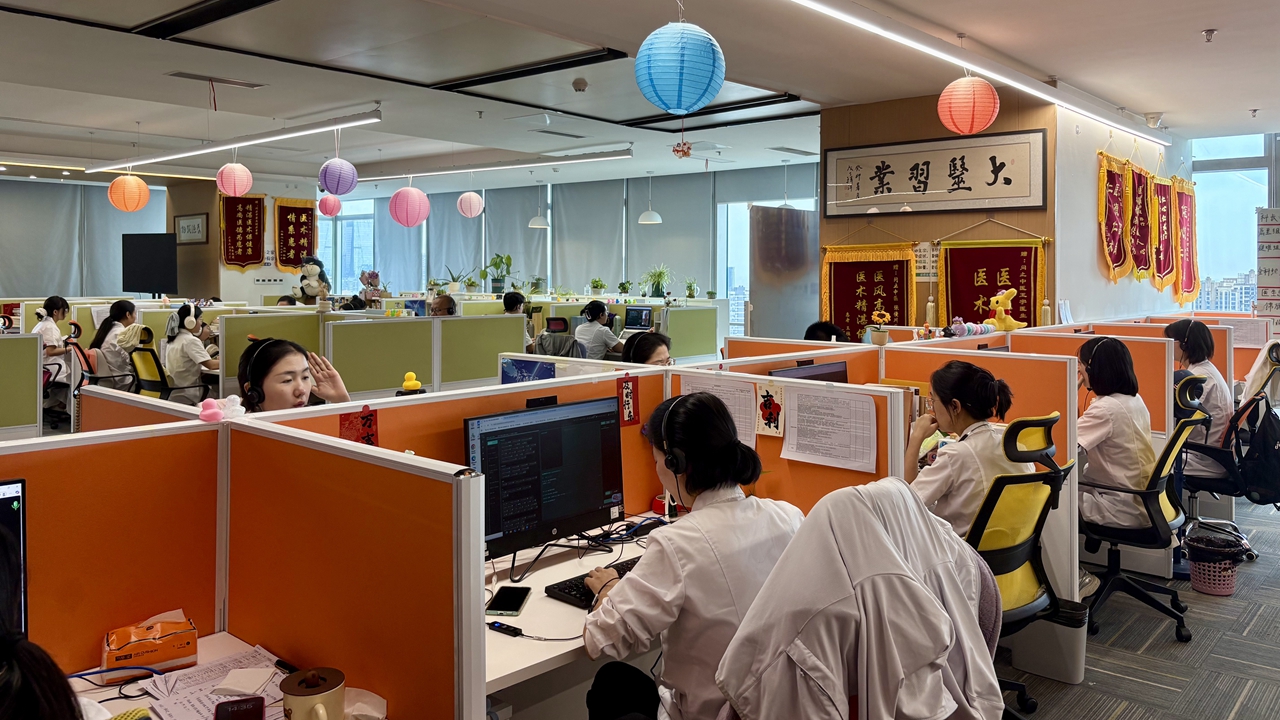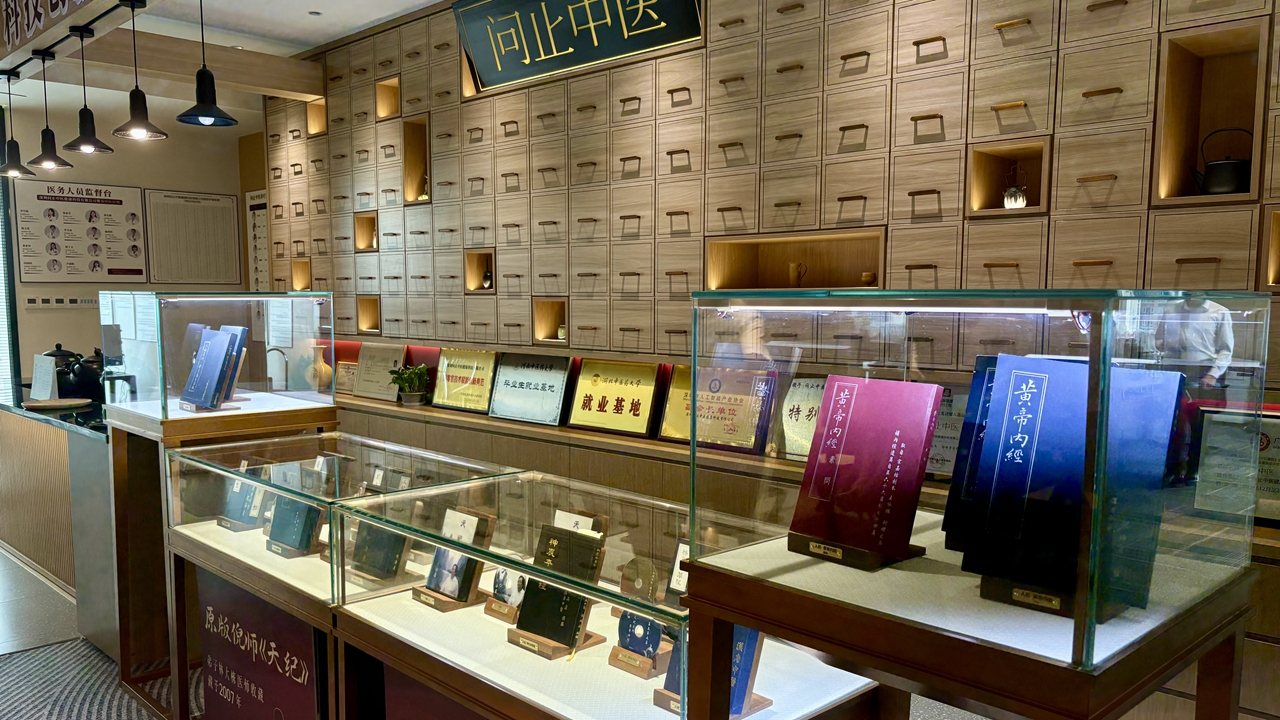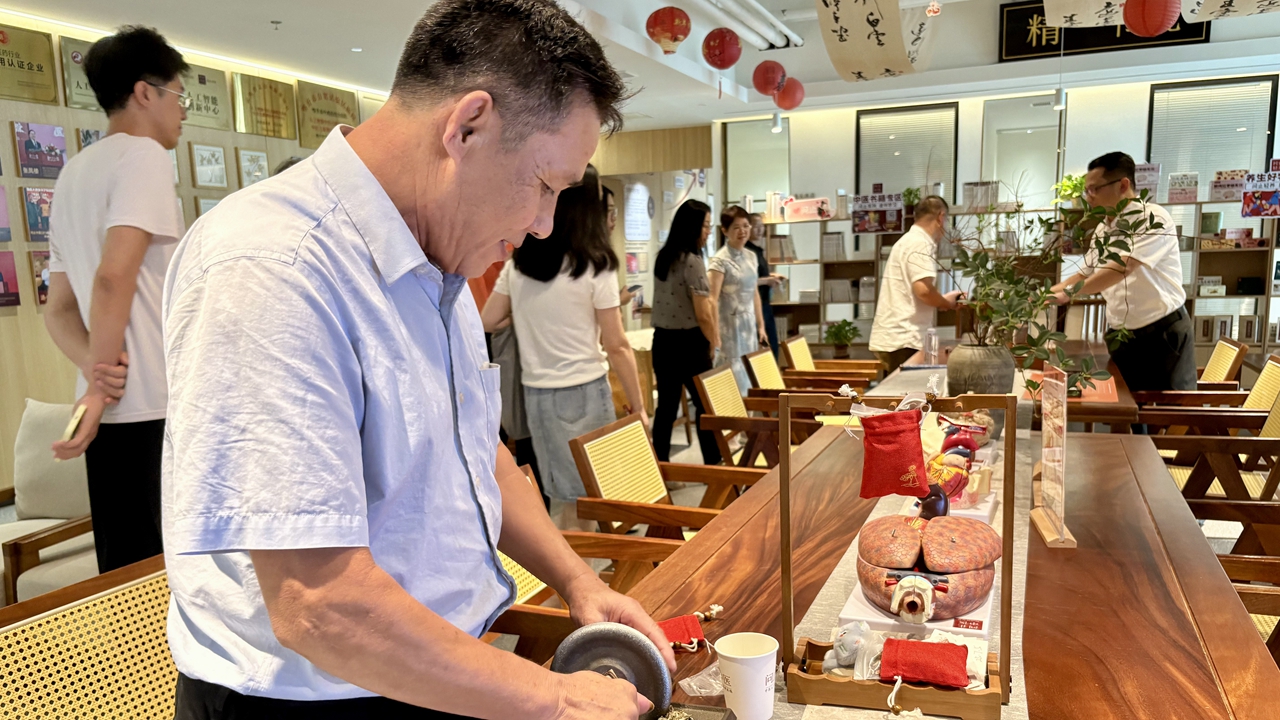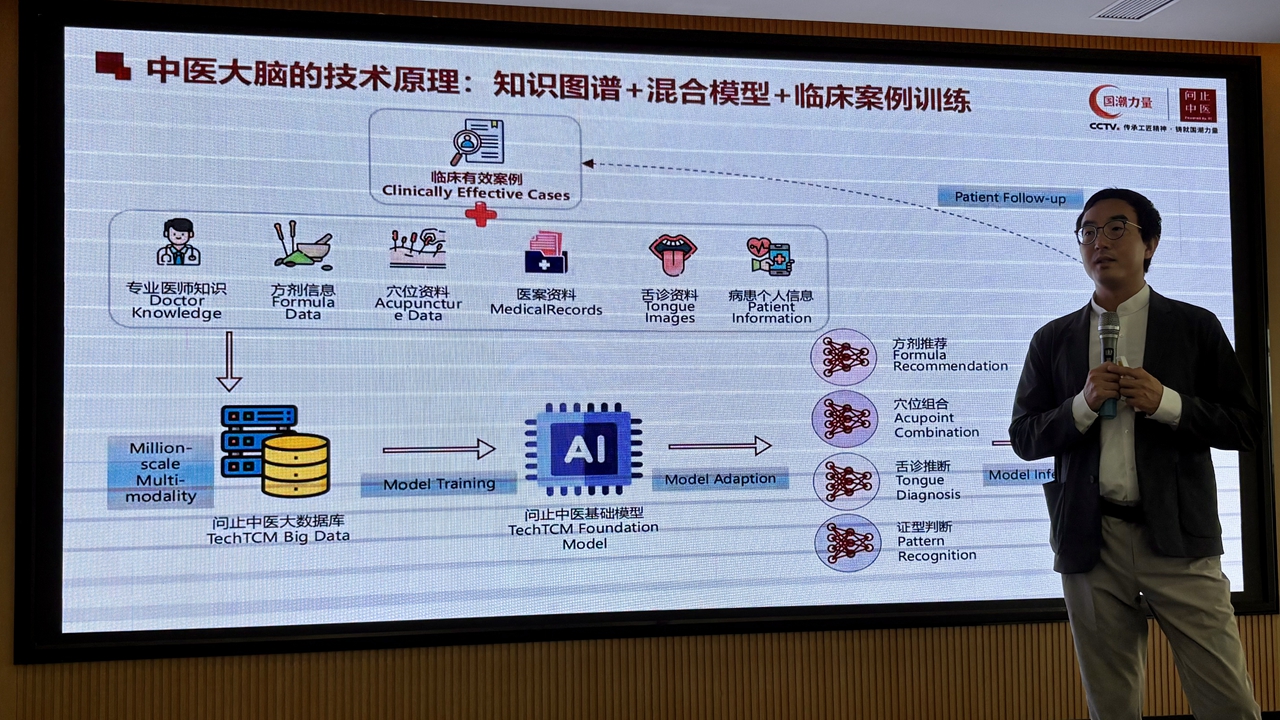Shenzhen-based TechTCM files for IPO
Writer: Zhang Yu | Editor: Zhang Chanwen | From: Original | Updated: 2025-08-29
Shenzhen-based TechTCM has recently filed for an initial public offering (IPO) in Hong Kong, positioning itself to become the first publicly traded company specializing in artificial intelligence (AI) for traditional Chinese medicine (TCM).
This is the second time TechTCM has filed for an IPO after the first submission in early 2025.
The Shenzhen-headquartered company, established in June 2018, is an AI-powered provider of TCM medical services.

TechTCM's TCM practitioners receive online consultations from patients at the company's headquarter in Bao'an District in Shenzhen on Aug. 27. Photos by Zhang Yu
Its flagship product, the “TCM Brain,” is an AI-assisted diagnostic system that boasts the industry’s largest clinical knowledge graph with over 100 million parameters and more than 10,000 herbal formulas covering over 3,000 types of conditions.

Chinese medical classics are on display at TechTCM's headquarter.
According to the prospectus, TechTCM reported revenues of 62.2 million yuan (US$8.6 million) in 2022, 189 million yuan in 2023, and 236 million yuan in 2024. For the first five months of 2025, the company recorded revenue of approximately 100 million yuan, up from 89.8 million yuan in the same period last year.

A TCM practitioner (L2)grinds Chinese herbs at TechTCM's headquarter.
The company operates three main business segments, with TCM medical services accounting for 90% of its revenue. The other segments are TCM lifestyle products and TCM Brain subscription services.

TechTCM CEO Cui Xiangrui briefs about the company’s development at a media event in Shenzhen on Aug. 27.
At a media event in Shenzhen on Aug. 27, TechTCM CEO Cui Xiangrui highlighted the company’s growth trajectory, noting that the integration of AI with TCM is creating new opportunities for innovation and development.
“The acceleration of AI technology evolution and China’s ‘AI Plus Initiative’ have provided fundamental guidance for the deep integration of AI and TCM medical services,” Cui said.
Li Huixia, director of Gongming Community Health Center at Shenzhen Guangming District People’s Hospital, praised the TCM Brain system for effectively empowering TCM practitioners to conduct in-depth and comprehensive diagnostic consultations.
“The AI system significantly reduces the reliance on doctors’ personal experience and knowledge reserves,” Li said. “By training TCM practitioners to master and apply AI systems, we can substantially increase the supply of high-quality medical talent.”